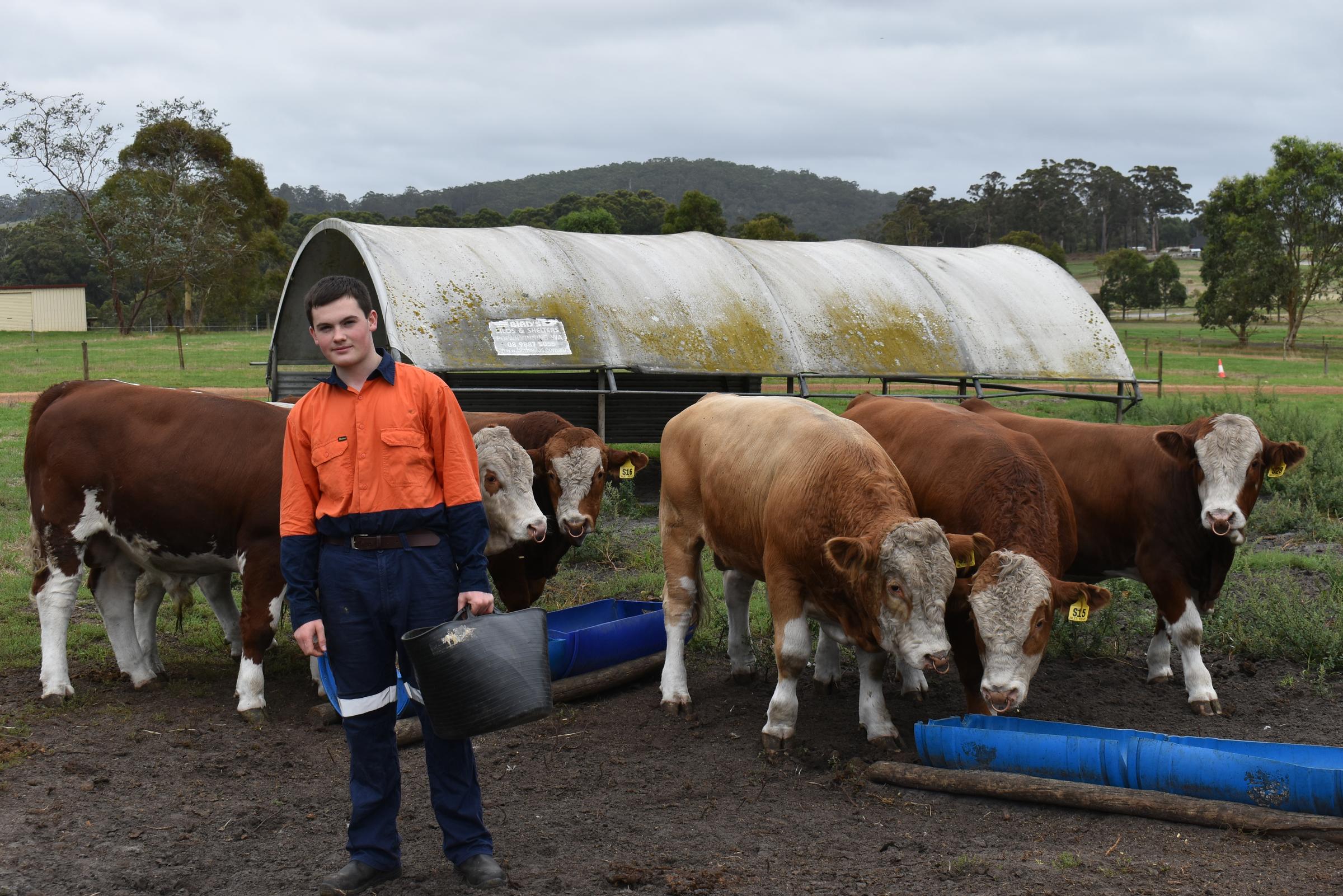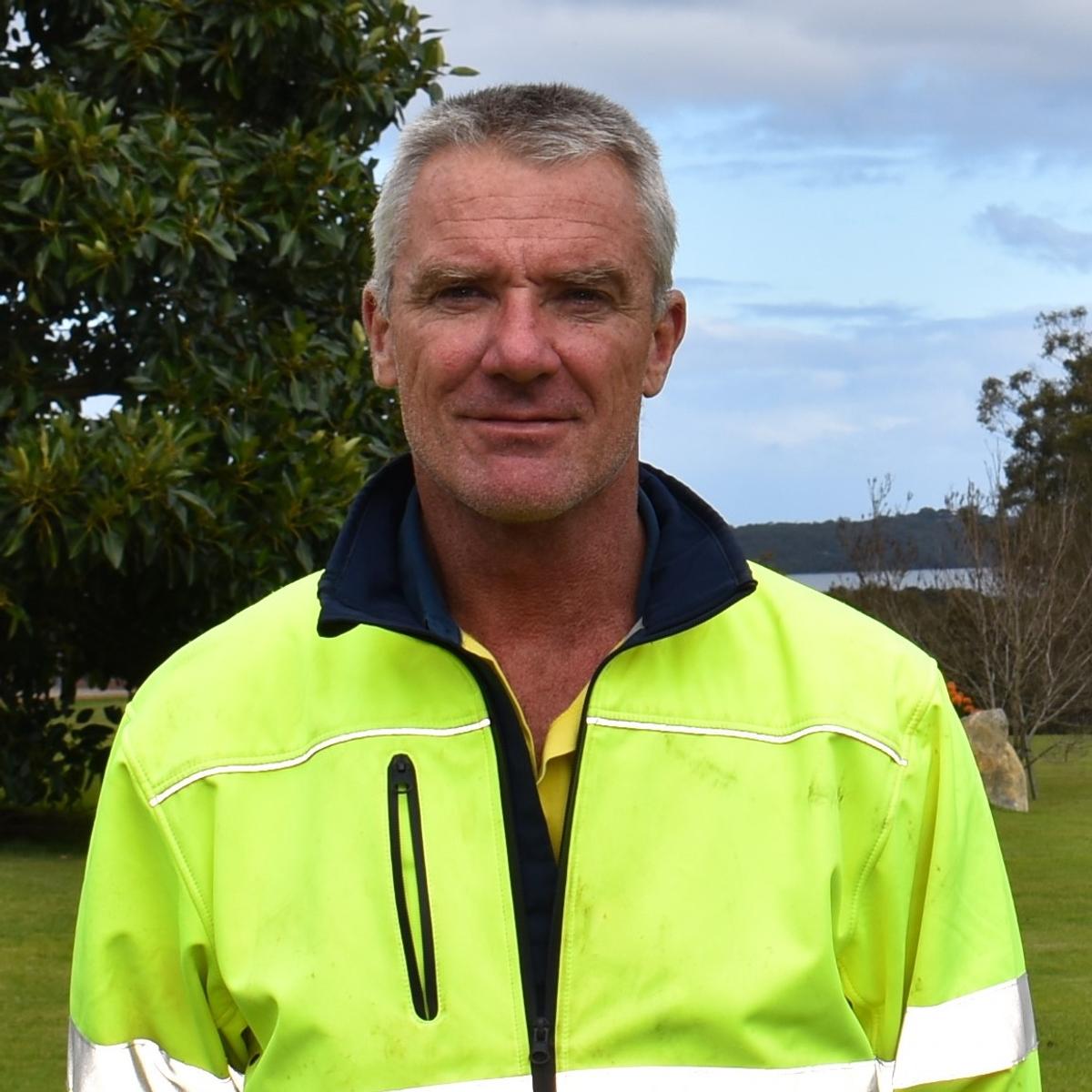Farm Manager
Kevin Marshall

Farm Manager
Kevin Marshall


Where does the time go? May already and the season is developing quite well. 20 mls of rain in February, 51 mls in March and 66 in April has given us a great start to cropping and pasture. Pastures have been sown with oats and rye grasses and with the warm conditions, germination has been quick. Carollup oats and Baroota Wonda wheat has also been sown as an option for hay production.
Lime has been spread and fertiliser purchased ready for spreading over established paddocks requiring phosphorus. Recent soil tests have revealed that soils across the three blocks of the farm are in very good shape with moderate to high levels of nitrogen, phosphorus and soil ph. Due to the high fertiliser prices we are applying a slightly lower fertiliser rate across the general pastures but maintaining high input in the high production, mainly dairy paddocks. This has meant an increase in the overall fertiliser budget.
Harris Block
Contractors are nearing completion of the roads and drainage construction. Culverts have been installed and water drainage seems to have improved - diverting water away from the paddocks. Some fencing has been completed and once the roads are complete more will be erected. It is intended the contractors will then move to the East Block and gravel those laneways.
Local farmer Darren Burrows has been working around the farm and mainly the East Block preparing the laneways by removing topsoil and levelling gravel around the hay shed and new cattle yards. He has dug a large drain along the edge of the laneways to catch runoff and divert it towards the gully (erosion). Large culverts have been purchased to be installed in the gully after the laneways are gravelled. The farm staff will do this ourselves.
Cattle
Dairy cows have finished calving with several Simmental cross calves coming late in the season. The calving was a little spread out this year with a disappointing first round of AI. Miss Nia Campbell has been responsible for feeding the newborns and has developed some good skill and knowledge in this area. The wood chips in the calf shed have been successful with less moisture and soiled bedding.
During the Easter School Holidays technicians from De Laval visited the Dairy and along with providing some training for staff, completed an audit of the equipment and suggested a maintenance and replacement schedule. Farm staff were reasonably pleased with the training and advice provided. A formal assessment has not been prepared yet.
Beef cattle have finished calving and had a very good season. With minimal natural losses and excellent calving ease, trouble was kept to a minimum. Stud Simmental calves have thrown excellent dark colours with panda eyes and seem to be very uniform. Angus cows were joined to Angus, Limousin and backed up with yearling Simmental bulls. As a result, the Simmentals outperformed the older Angus bull, dominating the calving ratio is indicated by a lot of white faced calves. We will have to be careful going forward to breed enough pure Angus calves to retain heifers. We will buy another Angus bull immediately to cover this older bull as his performance is unknown at this stage.
Total calves born: 30 Simmental (some unregistered), 107 Angus cross.
Beef and dairy cattle are being inseminated this week using Angus and some Black Gelbvieh bulls over the commercial cows.
Sheep Feedlot
Fifty six Merino wethers were purchased from Katanning in February and mixed with fifty crossbred lambs and introduced onto a grain pellet ration. Lambs were weighed weekly by staff and students involved in the trial. Merino lambs were bought in at score 1.5-2, but had quite good frame size. After roughly nine weeks (two weeks longer than expected due to Wammco staffing issues- Covid) the lambs were slaughtered and results analysed. After all associated costs were deducted sales the lambs profit was $36/head.
Tractors/ Dual Cabs
The 30 HP Kubota FEL for horticulture has been delivered and put to work. It provides another tractor to use as a training resource in that area.
The Case 110 has arrived in Australia and hopefully isn’t too far away from delivery. An auto steer column and Trimble GFX 350 controller will be installed prior to delivery.
The two Kawasaki dual cab mules are in Albany and ready for delivery. They will make a huge difference to the transporting of students especially during the winter months over the wet pastures.
Along with the ongoing challenges with Covid 19 disrupting student and staffing, so far this year the farm is coping well and achieving ongoing projects and development as planned.